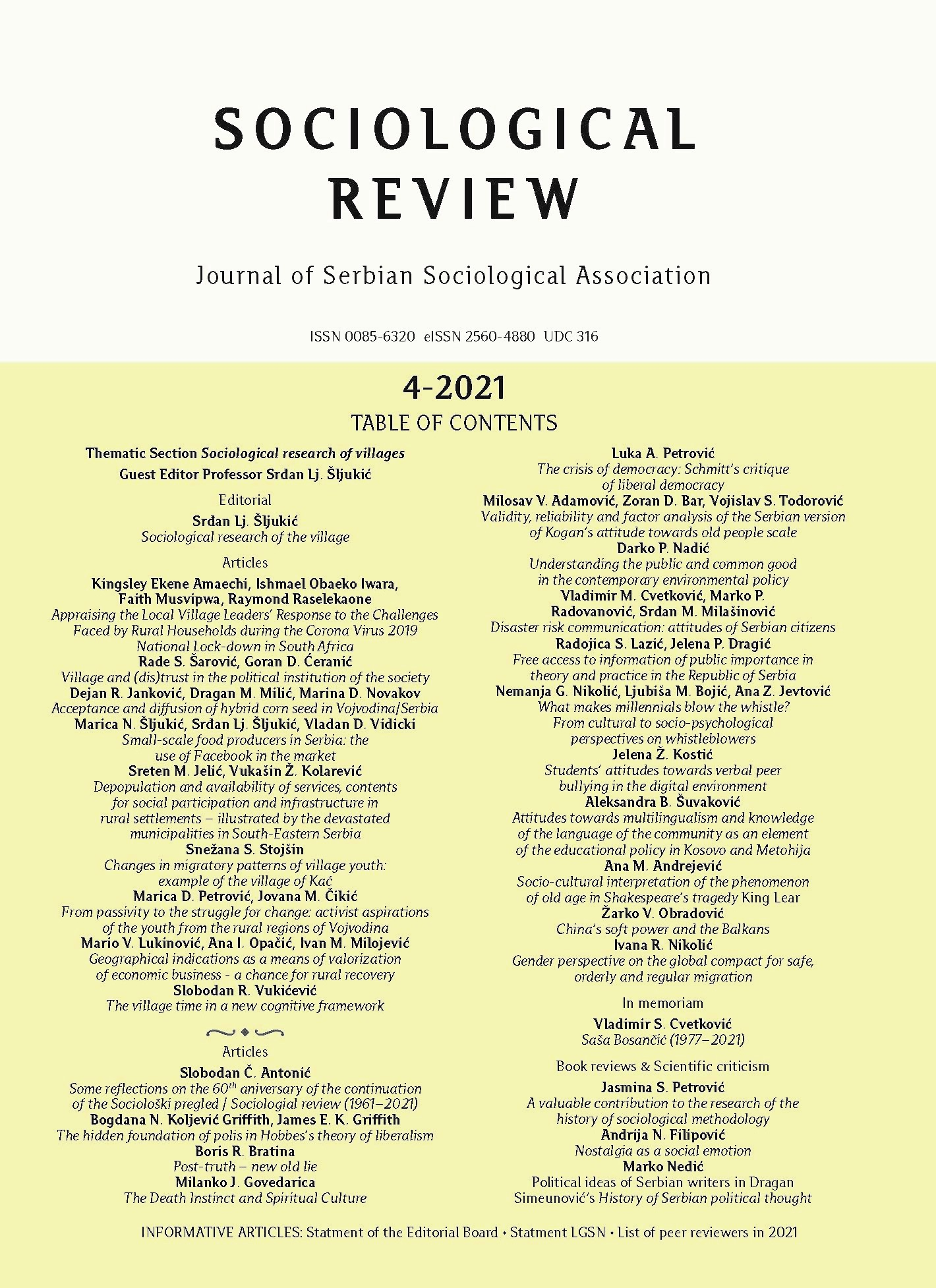What makes millennials blow the whistle? From cultural to socio-psychological perspectives on whistleblowers
What makes millennials blow the whistle? From cultural to socio-psychological perspectives on whistleblowers
Author(s): Nemanja G. Nikolić, Ljubiša M. Bojić, Ana Z. JevtovićSubject(s): Social Sciences, Sociology, Social development, Social differentiation, Social Informatics, Social Norms / Social Control, Sociology of Politics
Published by: Српско социолошко друштво
Keywords: Millennials;whistleblowing;leaking;intelligence agencies;imagined community;
Summary/Abstract: Whistleblowing cases that shook intelligence community in the last decade have something in common. Edward Snowden, Bradley Manning, and Reality Winner are all members of a single generation – Millennials. We challenge the viewpoint that depicts this generation as а potential “insider threat.” Millennials do have certain psychological traits and attitudes that can be related to tendencies towards whistleblowing, but these findings still do not approve the rhetoric that creates distrust towards the generation. This paper proposes a shift from the cultural to the socio-psychological level of analysis, with respect to both cultural and individual characteristics of whistleblowers, but puts more emphasis on the social dimension. In comprehending recent cases of leaking classified information, it is not enough to reduce explanation to some individual personality traits or hide behind an abstraction, such as the concept of generation. To shed more light on the issue, we introduce the concept of the imagined community, such as the open source community, promoting free Internet and transparency of information and knowledge. Therefore, mental membership in an imagined community might be more decisive for blowing the whistle than the global set of values related to the whole generation of Millennials.
Journal: Социолошки преглед
- Issue Year: 55/2021
- Issue No: 4
- Page Range: 1674-1695
- Page Count: 22
- Language: English, Serbian

